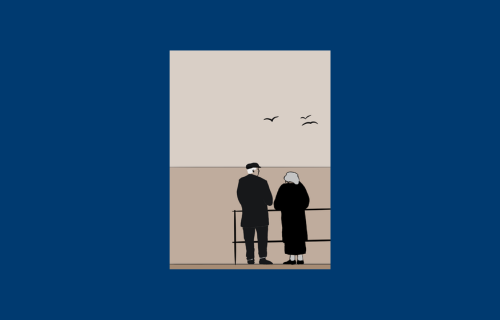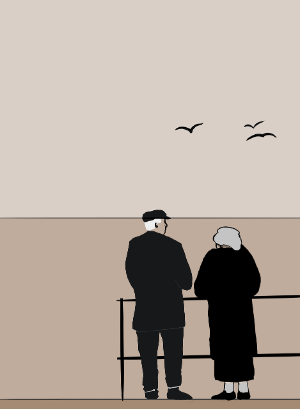TILDA - analysing public discourse on ageing and health
Monday, 8 January, 2024
Share

 Congratulations to Associate Professor Jonathan McNulty and all involved in the recently published paper 'Ageing well': Discursive constructions of ageing and health in the public reach of a national longitudinal study on ageing, in Social Science & Medicine.
Congratulations to Associate Professor Jonathan McNulty and all involved in the recently published paper 'Ageing well': Discursive constructions of ageing and health in the public reach of a national longitudinal study on ageing, in Social Science & Medicine.
Established in 2006, the Irish(opens in a new window)Longitudinal Study on Ageing (TILDA) investigates the health, economic and social circumstances of a nationally-representative sample of people aged fifty years and older in a series of biennial data collection waves. Irish newspapers have been reporting the results of TILDA for over a decade and a half, and their texts represent reports of scientific research distilled through the pen of journalists. In their totality, their texts constitute a public discourse on ageing and health. Using (opens in a new window)critical discourse analysis, the team examined the discourse within the texts of a purposive sample of two national daily newspapers. As sites of public discourse, newspapers reflect social life and are influential in forming and legitimating public attitudes. Like other sites of discourse, their language-in-use is contextually located, is rarely neutral and may employ strategies to discursively construct, sustain and privilege particular social identities, including ageing identities.
Discursively constructed as ‘ageing well’, the team's analysis of newspaper texts revealed a discernible meta-discourse on ageing and health in which ageing was framed as a life course stage that may be cultivated, diligently self-nurtured and exploited for its positive aspects. When considered in light of literature on health and social inequalities, the consequences of this broadly(opens in a new window)positive ageing discourse can, somewhat perversely, frame older adults in unintended negative ways, including homogenising them and attributing to them capacities for ageing well that they may not possess. Discursively constructing older adults as a social and economic resource can also impose unrealistic expectations on them and may legitimise exploitation and demonstrate how normative ideologies of (opens in a new window)ageism and (opens in a new window)ableism are conveyed through legitimising language. Despite these potentially unintended consequences, the available media resources associated with TILDA may represent one of the most important contributions of the study, in terms of informing positive public attitudes towards ageing.
Read the full report (opens in a new window)here.
UCD School of Medicine
UCD Health Sciences Centre, University College Dublin, Belfield, Dublin 4, Ireland. T: +353 1 716 6603 | E: school.medicine@ucd.ieAdditional Text Here is Optional